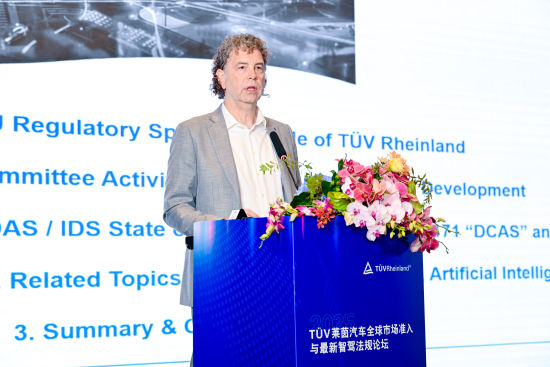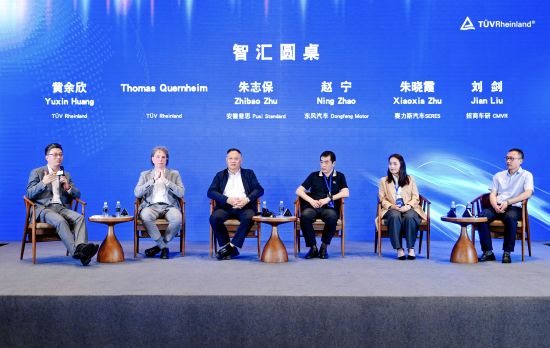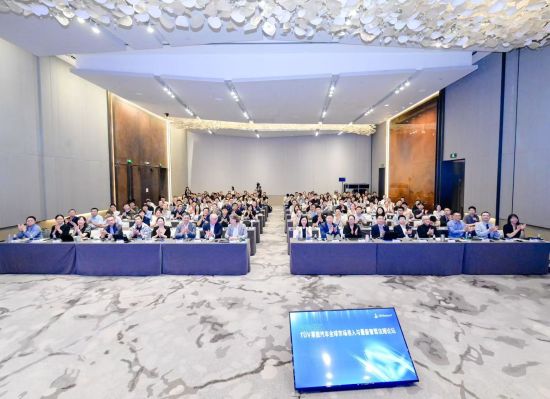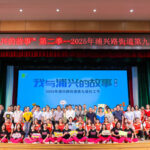International independent third-party testing, inspection, and certification organization TÜV Rheinland Greater China held the “Global Automotive Market Access and Latest Intelligent Driving Regulations Forum” in Shanghai. From regulatory interpretation to practical implementation, experts addressed the compliance challenges faced by automotive companies expanding globally, engaging in in-depth discussions with nearly 200 automotive R&D, management, and regulatory certification professionals on topics including China-Europe intelligent driving regulations, data compliance, global market access requirements, and functional safety, helping automotive companies navigate challenges and achieve stable global growth.
During the opening speech, it was stated: “Currently, rapid advancements in electrification and intelligent technologies are driving profound transformation in the global automotive industry; Chinese automotive companies are facing a strategic period of globalization opportunities, but also multiple challenges including evolving global intelligent driving regulations, dynamic market access standards across countries, and data compliance pressures. TÜV Rheinland, leveraging over a century of experience and technical expertise in automotive testing and certification, is committed to supporting automotive companies in their global expansion.”

At the forum, experts discussed the latest developments in European intelligent driving regulations, key points and practical applications of UN-R171 DCAS regulations, EU intelligent driving data compliance solutions, EU Individual Vehicle Approval (IVA), latest market access requirements and regulatory comparisons for key export countries, and functional safety requirements under UN type approval regulations. The current status and development of Chinese intelligent driving standards were also presented, helping automotive companies develop strategies to effectively address regulatory requirements and market challenges.

During the roundtable discussion, participants engaged in in-depth exchanges on challenges and practical experiences of Chinese new energy vehicle global expansion, new challenges and countermeasures for Chinese automotive companies’ globalization, and practical implementation considerations for advanced intelligent driving in Europe. Participants shared their companies’ experience summaries and industry insights, providing new perspectives for attendees.
During the forum, TÜV Rheinland held multiple certification ceremonies. With TÜV Rheinland’s support, Foton Motor light trucks received EU Whole Vehicle Type Approval certificates from the Swedish Transport Agency; Hongqi EHS5 and EH5 vehicles received EU WVTA certificates from the Luxembourg Ministry of Transport; Leapmotor received UN-R155 vehicle cybersecurity and UN-R156 vehicle software upgrade type approval certificates from SNCH; Li Auto received UN-R156 vehicle software upgrade management system certification from SNCH.
Additionally, TÜV Rheinland presented “Innovation Partner Awards” to Dongfeng Motor, Xiaomi Auto, Yuan Cheng Commercial Vehicle, Sany Heavy Truck, and Jiangling Motor; and presented “Strategic Cooperation Awards” to SAIC Commercial Vehicle, Seres Auto, Foton Motor, China FAW Group, China National Heavy Duty Truck, Great Wall Motor, XPeng Motors, Leapmotor, BYD Auto, and Geely Auto, recognizing these companies’ long-term trust and support, and looking forward to continuing collaboration to promote high-quality, sustainable industry development.
TÜV Rheinland’s vehicle testing and certification services began in 1904, dedicated to providing precise, professional services for participants at every stage of the value chain. For both traditional vehicles and new energy vehicles, services include target market regulatory research during R&D phases, vehicle and component testing and certification, road adaptability testing, market access certification, quality management during production phases, service quality improvement during after-sales phases, as well as supplier capability development and personnel qualification certification. For intelligent connected transportation, comprehensive technical support is available including domestic and international autonomous vehicle safety assessments, EU autonomous driving exemption approvals, autonomous driving site safety assessments, and intelligent transportation system independent verification and validation.



